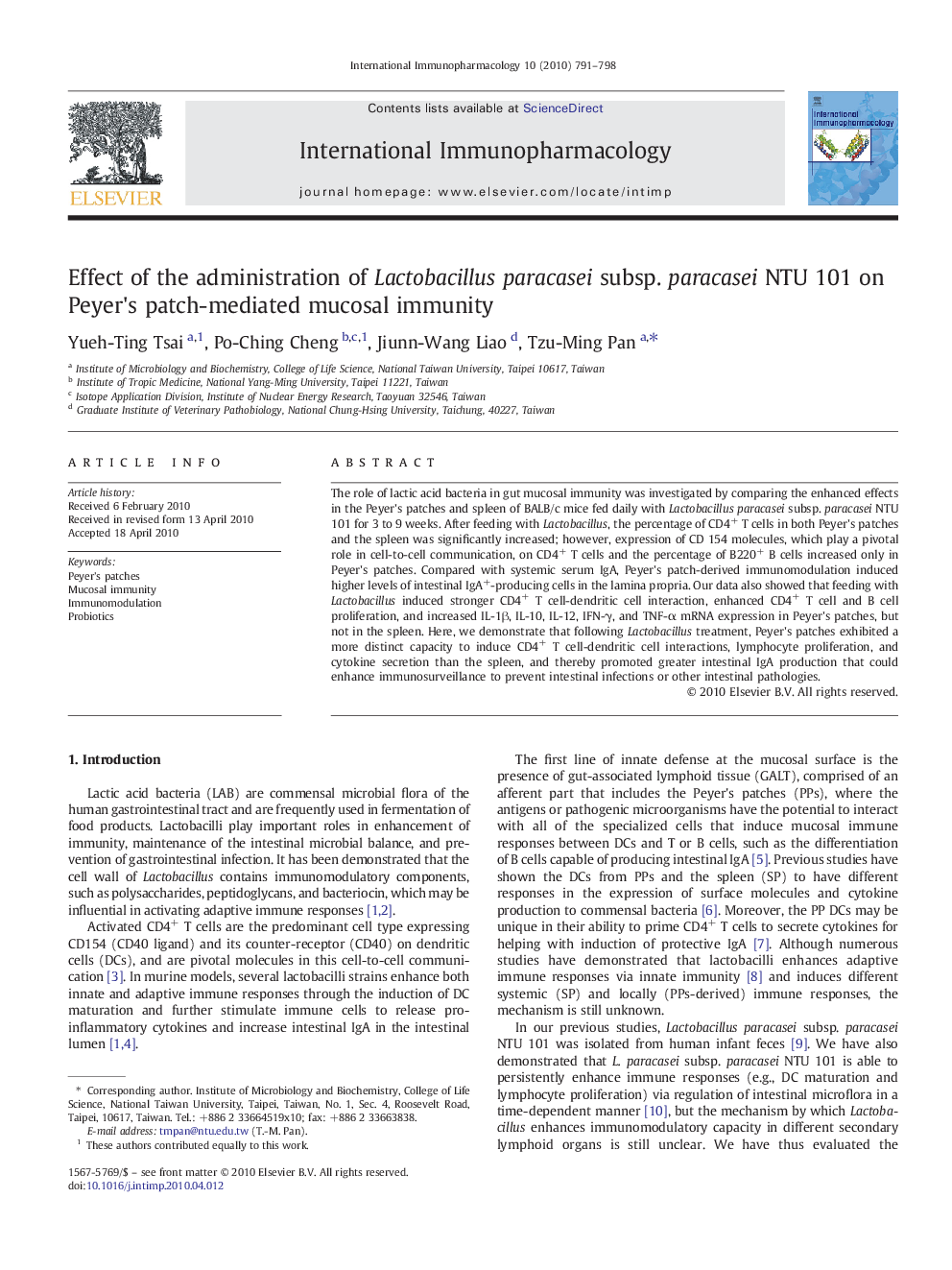| Article ID | Journal | Published Year | Pages | File Type |
|---|---|---|---|---|
| 2541459 | International Immunopharmacology | 2010 | 8 Pages |
The role of lactic acid bacteria in gut mucosal immunity was investigated by comparing the enhanced effects in the Peyer's patches and spleen of BALB/c mice fed daily with Lactobacillus paracasei subsp. paracasei NTU 101 for 3 to 9 weeks. After feeding with Lactobacillus, the percentage of CD4+ T cells in both Peyer's patches and the spleen was significantly increased; however, expression of CD 154 molecules, which play a pivotal role in cell-to-cell communication, on CD4+ T cells and the percentage of B220+ B cells increased only in Peyer's patches. Compared with systemic serum IgA, Peyer's patch-derived immunomodulation induced higher levels of intestinal IgA+-producing cells in the lamina propria. Our data also showed that feeding with Lactobacillus induced stronger CD4+ T cell-dendritic cell interaction, enhanced CD4+ T cell and B cell proliferation, and increased IL-1β, IL-10, IL-12, IFN-γ, and TNF-α mRNA expression in Peyer's patches, but not in the spleen. Here, we demonstrate that following Lactobacillus treatment, Peyer's patches exhibited a more distinct capacity to induce CD4+ T cell-dendritic cell interactions, lymphocyte proliferation, and cytokine secretion than the spleen, and thereby promoted greater intestinal IgA production that could enhance immunosurveillance to prevent intestinal infections or other intestinal pathologies.
